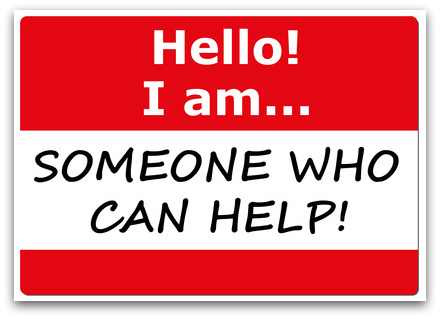Sales Tips For Coaches
In today’s guest post Dan Storey shares some of his experience and knowledge as he focuses on a topic many coaches have questions about:
Sales Tips For Coaches
by Dan Storey

One of the biggest challenges I hear from coaches I work with is that they don’t have enough clients. They give away free session after free session, host free talks, webinars and interviews and have hundreds of people interested in working with them, but when you ask them how many clients they actually work with, the answer is usually “not enough!”. “Not enough” often translates into financial terms as well, which means that great coaches often cannot do enough great coaching because they are unable to earn enough money to make it a sustainable business. Sound familiar?
Coaching, in its various formats, is a multi billion dollar industry with millions of people around the world paying experts to help them improve some area of their life. People can see the value in coaching and are willing to invest money in themselves when they see the potential return. There are people in your niche making plenty of money right now, and the reason they are making the money is because they have learned how to generate enquiries and turn them into paying clients.
This is the essence of selling, often a dirty word amongst coaches. After all, you do such a great job as a coach, you shouldn’t have to sell your services. Plus if someone wanted to work with you, they would just buy. If you have to push them to do something, eventually they are going to resent it and that will damage your relationship with them.
If you have ever heard yourself saying any of the above, you have “stuff” around selling. “Stuff” is the not-so-technical term for limiting beliefs and associations that are attached to a concept. If you want to go into it a little deeper (which I am not sure we have time for in this post), then coaches face an additional challenge of selling themselves, which raises all sorts of self-worth type questions. However, assuming for the moment that you are confident in the value of what you are selling, let’s look a little at the issues around selling you have, and some practical tips on what you can do to get over this fast.
Issue 1 – Salespeople are…
How do you complete this phrase? Are you full of glowing compliments for salespeople, or do you immediately think of the stereotypical fast-talking, only-interested-in-the-deal kind of hustler that is only interested in your money? Many peoples’s global beliefs and generalisations around salespeople immediately push them away from any personal associations with sales and selling. However, to be great at what you do, you have to sell. For example, do you want to be a great author or a “best-selling” author? Maybe it is time to examine your personal beliefs around sales people.
Issue 2 – What Do I Say?
Have you heard of the Xanadu close? Or the Orchid sales strategy? Or what about the PAWS approach to asking questions? I hope not, I just made those three things up. However, there are a million and one sales tactics out there designed to make you better at selling. The problem is not really ‘what do you say’ but more ‘what DON’T you say’! Information overload happens everywhere, and sales is no different, and where there is confusion there is usually inertia. Shortly you will learn that sales is simply a conversation with a desired outcome, so lets keep it simple.
Issue 3 – What If They Reject Me?
Ok, now we raise the big issue of rejection. You are a great coach, you can build rapport with anyone easily and you develop close relationships that allow you to help people improve their lives. So what if they say “no” when you ask them to buy something. Yikes! This is the biggest fear for all salespeople, not just coaches, so first of all, lets just accept that it exists. Yes, you will face rejection, and even if you are a great salesperson, you will probably hear “no” more often than “yes”. Just accept that you don’t like rejection, and that it is a natural part of selling. As Susan Jeffers wrote ‘feel the fear and do it anyway’. Just remember that you have a bigger dream for yourself which you won’t let this fear hold you back from.
Ok, now we know the issues, take a deep breath and leet them go… feel better? Do those issues still exist? Of course, they aren’t going to go away over night. However, now that you have addressed them and accepted them, we can move forward.
So how do we sell? Rather than try and get you to do everything all at once, here are my top three tips for people who want to start selling more.
Action 1 – Tell Them Right From The Start
I’m sure you have heard of the Aristotlian triptych of “tell them what you are going to tell them, tell them, then tell them what you told them”? Setting the agenda and telling people what is going to happen up front allows them to relax and enjoy the process. If you suddenly spring a sales pitch on someone unawares, this will seem out of place and therefore have a lower chance of success. For example, if you are conducting a free session, introduce the session by saying “we are going to go through a number of process and then, when we are finished, we will look at the possible ways we can work together moving forward”. Throw in a couple of nicely worded presuppositions if you like, but when you start to tell them about your options, they won’t react adversely.
Action 2 – Be Prescriptive
Imagine going to the doctors. You sit down and before you open your mouth, the doctor starts telling you all of the different treatments that exist for all the different possible illnesses. Is that what normally happens? No, you usually have a consultation where the doctor examines you and then you are prescribed a course of treatment. As people, we trust people with expertise to make the best decision for us, and your potential client probably wants a little guidance on what direction to take rather than leaving the choice in their hands. Being prescriptive with your sales offering makes it easier for your client to say yes by removing any superfluous options.
Action 3 – Follow Up
Many people do not like to be forced into making decisions and prefer to think about it first. Many sales approaches discourage thinking and tell you to strike while the iron is hot, and whilst this may work in some situations, it might not be as conducive to coaching. If someone enjoys your session and then wants to think about their options then this is fine. What is not fine, however, is that you put the emphasis on them to call you back and buy. Follow up with them, via email at least but I would recommend in person where possible, to give them a second or third chance to buy. If they don’t want to work with you, that is one thing, but if they aren’t ready to work with you yet, then that is something completely different. Maintain contact, keep in touch, and give them plenty of opportunities to say yes in the future.
If you adopt these three behaviours, you will see significant improvements in your sales rates as a coach. At first, it might seem a little clunky and awkward, but practice will make you more effective and better able to include these elements in your normal coaching conversations. Please post any comments and thoughts you may have below.
About Dan Storey
Dan Storey is the author of Next Level Persuasion – Sell anything to anyone and have them thank you for it! which is available on Amazon in paperback and kindle formats. Dan spends his time training businesses and sales teams how to sell more effectively using neuro-linguistic programming, basing much of the training on the content from the book. Click here to find out more about Dan Storey and Next Level Persuasion or buy the book on Amazon here.

 Do you take your business personally? It’s an honest question. Most people say “It’s business, don’t take it personally.” But really, is that possible? I don’t think so. I think business is personal. Let’s face it, we are people. We are people who have lives, who love and care for others. As humans we are compassionate, thoughtful and we have feelings. So how can we take the feelings out of business? We can’t. We can, however, take the negativity out of it.
Do you take your business personally? It’s an honest question. Most people say “It’s business, don’t take it personally.” But really, is that possible? I don’t think so. I think business is personal. Let’s face it, we are people. We are people who have lives, who love and care for others. As humans we are compassionate, thoughtful and we have feelings. So how can we take the feelings out of business? We can’t. We can, however, take the negativity out of it.
 Ben Morton is a Leadership Consultant at
Ben Morton is a Leadership Consultant at 

